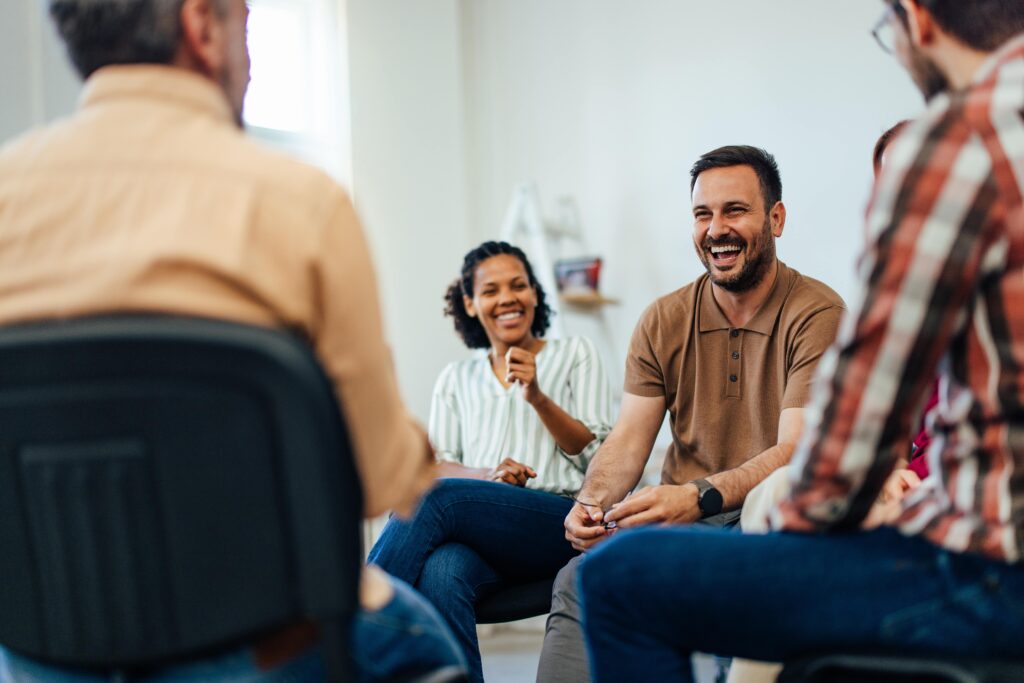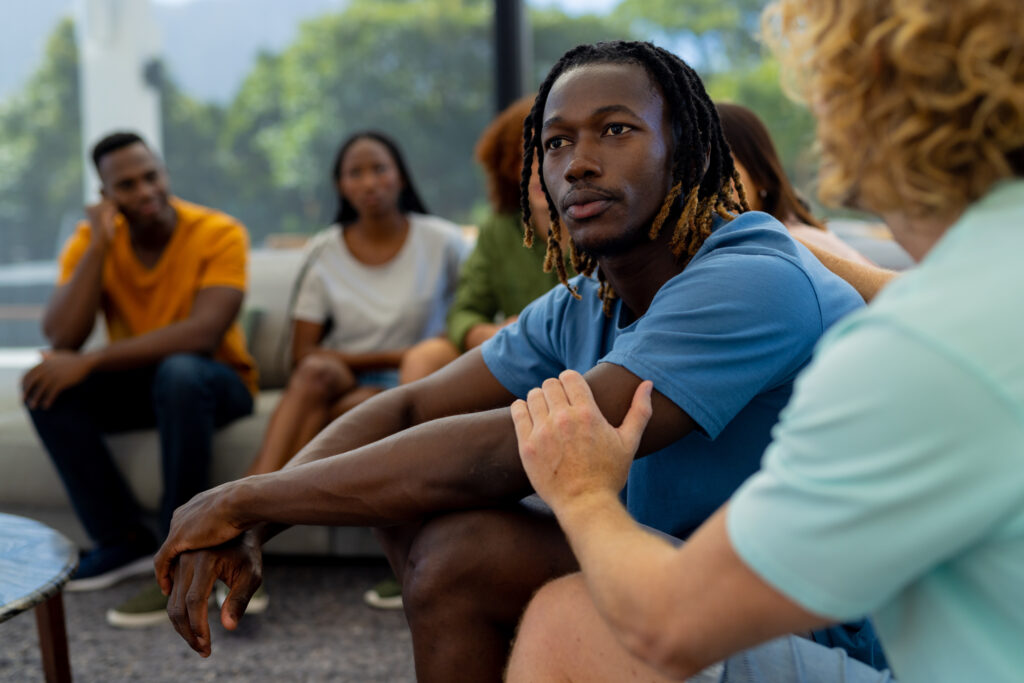Georgia Drug and Alcohol Addiction Treatment Resources
In Georgia, the battle against drug and alcohol addiction is ongoing. Yet, hope shines bright for those seeking Georgia addiction treatment. With a comprehensive range of resources available, individuals struggling with substance abuse and addiction have access to the support they need to embark on a journey toward healing.
From specialized detox centers to national helplines and online directories, Georgia offers a variety of avenues for assistance. Whether it’s finding the right detox facility or connecting with support groups, the state is equipped to guide individuals through their recovery process.
Overview of Substance Abuse in Georgia
Georgia faces significant challenges with substance abuse, affecting countless individuals and families across the state. Understanding the scope and specifics of drug and alcohol addiction within Georgia’s borders is essential for grasping the critical necessity for comprehensive addiction treatment resources.
Seeking treatment is a crucial step on the path to recovery, with Georgia addiction treatment resources ready to provide the necessary support and care. Types of treatment available across the state include inpatient rehab, outpatient programs, and specialized support groups, ensuring that individuals have access to the care that best suits their recovery journey.
Statistics on Drug and Alcohol Addiction in Georgia
The battle against addiction is ongoing in Georgia, with data revealing a sobering picture of the state’s struggle. In October 2017, the opioid crisis was officially declared a national public health emergency by the U.S. Department of Health and Human Services. According to data provided by the Centers for Disease Control and Prevention (CDC), over one million individuals have lost their lives due to drug overdoses since 1999.
Both fatal and non-fatal drug overdoses have shown an upward trend in Georgia and across the nation. The CDC reported that in 2023, there were nearly 105,00 drug overdose deaths in the country.
According to data from the Georgia Department of Public Health spanning from 2019 to 2021, there had been a significant surge in opioid-related overdose fatalities, escalating from 853 to 1,718, marking a substantial 101% increase. These escalations have been predominantly fueled by the prevalence of fentanyl, a potent synthetic opioid frequently present in substances like cocaine, heroin, and counterfeit medications.
Over the same period, fatalities stemming from fentanyl-related overdoses surged by 124%, escalating from 614 to 1,379. In 2021 alone, Georgia witnessed a total of 2,390 drug overdose fatalities. Opioids accounted for 71% (1,718) and fentanyl contributed to 57% (1,379) of these cases.
Concurrently, instances of non-fatal drug overdoses have also shown an upward trajectory in Georgia. From 2019 to 2021, visits to emergency departments due to drug overdoses saw a 10% uptick, ascending from 24,886 to 27,388.
Commonly Abused Substances in Georgia
In Georgia, like many other parts of the world, various substances are commonly abused. Some of the most frequently abused substances in Georgia include:
- Alcohol: Alcohol abuse is prevalent in Georgia, with many individuals struggling with alcohol addiction and related health and social problems.
- Opioids: Prescription opioids and illicit opioids such as heroin are significant concerns in Georgia, contributing to addiction, overdoses, and fatalities.
- Marijuana: Despite changes in legislation regarding marijuana, Georgia remains concerned about its abuse, particularly among young adults.
- Cocaine: Cocaine abuse continues to be a significant issue in Georgia. Individuals commonly abuse both powder cocaine and crack cocaine.
- Methamphetamine: Methamphetamine abuse has been on the rise in Georgia in recent years. It leads to addiction, health complications, and criminal activity.
- Prescription Drugs: Prescription drug abuse, including opioids, benzodiazepines, and stimulants, is a growing problem in Georgia. This abuse contributes to addiction and overdose deaths.
- Synthetic Drugs: Synthetic drugs such as synthetic cannabinoids (e.g., Spice, K2) and synthetic cathinones (e.g., bath salts) are also abused in Georgia. Often, leading to adverse health effects and emergency room visits.
- Designer Drugs: Designer drugs, including MDMA (ecstasy), LSD (acid), and ketamine, are occasionally abused in Georgia. Particularly, among certain subcultures and age groups.
It’s essential to address substance abuse through prevention, education, treatment, and support services to mitigate the negative consequences associated with substance abuse and addiction in Georgia.
With these substances fuelling the addiction crisis in Georgia, the need for diverse and accessible treatment options has never been more pressing. From federal to local resources, Georgia is equipped with a broad array of programs aimed at offering hope and healing to those trapped in the cycle of addiction.

How is Georgia Addressing the Crisis?
In the face of a growing opioid epidemic, Georgia has not been spared. With the significant amount of opioid-involved deaths, the need for comprehensive resources is more urgent than ever. Fortunately, for those affected by substance abuse, help is readily accessible across the state. Georgia’s approach to combating addiction is multifaceted. It spans federal, state, county, and local resources aimed at offering hope and support to those in need.
The importance of seeking Georgia addiction treatment cannot be overstated. Addiction, if left unchecked, can ravage lives, tearing apart families and crippling communities. In response, The state has marshaled a broad array of services designed to guide individuals toward recovery. From inpatient rehab centers offering intensive care to outpatient programs allowing for therapy while maintaining daily responsibilities, the options are as diverse as the individuals seeking help.
Recovey Resources in Georgia
Key to the state’s strategy is ensuring these resources are not just available but accessible. Whether it’s navigating the Georgia Crisis and Access Line (GCAL) for immediate assistance or connecting with local support groups to foster a sense of community and understanding, the pathways to recovery are both clear and comprehensive. The state also champions innovative approaches like Recovery 2.0, a global movement that adopts a holistic view of recovery. Thereby, underscoring Georgia’s commitment to embracing all effective paths to addiction recovery.
Georgia approaches addiction with a blend of immediacy and inclusiveness. The state’s resources not only aim to address the immediate health crisis precipitated by addiction, but also to stitch together a fabric of support that encompasses mental health, community solidarity, and sustained recovery.
Through such a comprehensive network of services, Georgia offers multiple pathways to sobriety for those caught in the grip of addiction. Therefore, affirming that recovery is not just possible but within reach.
In addition to state-wide programs, local initiatives for overdose prevention, treatment referral services, and faith-based outreach help those who need Georgia addiction treatment in the following cities:
- Alpharetta, GA
- Savannah, GA
- Athens, GA
- Columbus, GA
- Augusta, GA
- Atlanta
- Macon
- Sandy Springs
- Roswell
- Johns Creek
- Albany
- Warner Robins
- Marietta
- Valdosta
- Smyrna
- Brookhaven
- Dunwoody
- Peachtree Corners
- Gainesville
- Newnan
- Milton
- Rome
- East Point
- Peachtree City
- Hinesville
- Dalton
- Kennesaw
- Douglasville
- Lawrenceville
- Lagrange
Georgia Council on Substance Abuse
The Georgia Council on Substance Abuse is a non-profit organization dedicated to reducing the impact of substance abuse in Georgia. They work to raise awareness, advocate for policy changes, and provide resources and support for individuals and communities affected by substance abuse.
The organization collaborates with various stakeholders, including government agencies, healthcare providers, law enforcement, and community organizations, to address substance abuse issues through prevention, intervention, treatment, and recovery initiatives. They promote a healthier and safer Georgia by addressing the root causes of substance abuse and supporting individuals in their journey toward recovery.

CARES Warm Line
The Georgia CARES Warm Line is a confidential peer support line available to individuals in Georgia who are experiencing emotional distress or struggling with mental health or substance use challenges. It is operated by trained peer specialists who have personal experience with mental health or substance use issues and are dedicated to providing empathetic support, active listening, and encouragement to callers.
The Warm Line offers a non-judgmental space for individuals to talk about their feelings, share their experiences, and receive guidance on available resources and coping strategies. It aims to promote mental wellness, reduce stigma, and empower individuals to take steps toward recovery and well-being. The Warm Line is available 24/7 and can be reached toll-free at 1-844-326-5400.
Veterans Support Services
Veterans Support Services is committed to empowering and supporting military veterans struggling with substance use disorder and their families. Established by Thaddeus Rollins, the organization embraces a comprehensive approach to advocacy. They partner with various public, private, and nonprofit organizations to address the multifaceted needs of veterans.
Their mission is to inspire hope, promote health, and enhance overall wellness within the veteran and recovery community. Their services encompass organizing community gatherings to foster recovery, educating veterans on disability compensation claims, reaching out to the homeless population, and providing resources for recovery.
Recovery Support Clubhouses
The Georgia Department of Behavioral Health and Developmental Disabilities (DBHDD) Office of Addictive Diseases supervises nine Recovery Support Clubhouses. They are tailored for adolescents aged 13 to 17 facing substance use issues. These Clubhouses employ a comprehensive recovery support model aimed at involving youths and their families in the recovery process.
Operating as supportive environments, Clubhouses consider consumers as members. Whereas, staff and members collaborate on clubhouse tasks and engage in various activities and services like social outings, educational and employment assistance, transitional services, and specific clubhouse activities.

Georgia Overdose Prevention
The Georgia Overdose Prevention Program is designed to address the growing opioid crisis and the increasing rates of overdose deaths in Georgia. The primary goals of the program are to raise awareness about overdose risk factors, provide education on overdose prevention strategies, increase access to naloxone (an opioid overdose reversal medication), and promote harm reduction practices.
Additionally, the program works to expand access to naloxone by distributing naloxone kits to at-risk individuals and their loved ones. As well as through partnerships with pharmacies and community organizations. Also, the program advocates for policies and legislation that support overdose prevention efforts. This includes Good Samaritan laws that provide legal protections to individuals who seek help for someone experiencing an overdose.
Georgia Association of Community Service Boards
The Georgia Association of Community Service Boards (GACSB) functions as a support organization for all 22 Community Service Boards (CSBs) in Georgia. The GACSB aids CSBs through advocacy efforts at the state and national levels. Thus, ensuring a unified stance on policy and legislation.
CSBs, established as public entities, operate across the state, addressing mental health, intellectual/developmental disabilities, and addictive disorders. Each CSB, governed by locally appointed Boards of Directors, contributes to Georgia’s Public Safety Net. Thereby, offering services to individuals with significant mental health challenges, developmental disabilities, or addiction issues. Especially, those lacking insurance or financial means to pay for Georgia addiction treatment.

Recovery Support Groups and Meetings
Support groups form another cornerstone of Georgia’s addiction treatment landscape. These groups recognize the power of shared experiences. Thereby, offering a space for individuals to find empathy, understanding, and encouragement. From sober living communities to preventative education initiatives, the support available spans the spectrum of needs. Each one plays a critical role in the broader fight against addiction.
Alcoholics Anonymous in Georgia
Narcotics Anonymous in Georgia
Georgia Area Cocaine Anonymous
Crystal Meth Anonymous in Georgia
Gay and Sober Georgia Meetings
Georgia Drug and Alcohol Addiction Treatment Resources
Seeking help for addiction is crucial for several reasons. Firstly, addiction is a complex and challenging condition that often requires professional intervention and support to overcome. Trying to navigate the journey to recovery alone can be overwhelming. Additionally, it may lead to relapse or worsening of substance use disorder. Therefore, accessing treatment provides individuals with the necessary tools, guidance, and support to begin the path to recovery.
Detox: The Foundation For Successful Recovery
Recovery begins with a quality detox center like Retreat of Atlanta. Detox plays a crucial role in the early stages of overcoming addiction. A detox program provides a safe and supportive environment for individuals to rid their bodies of harmful substances. And, also while managing withdrawal symptoms effectively. Retreat of Atlanta offers professional medical supervision. This approach ensures that detoxification is conducted safely and comfortably.
Moreover, a quality detox program sets the foundation for long-term recovery. Thereby, addressing both the physical and psychological aspects of addiction. Beyond simply removing toxins from the body, Retreat of Atlanta provides a range of therapeutic services to address the underlying issues driving addiction. This may include individual counseling, group therapy, and educational resources. These services help individuals understand their addiction and develop coping skills for managing cravings and triggers.
By starting with a quality detox program like Retreat of Atlanta, individuals are better equipped to transition into further stages of treatment and recovery. Consequently, with a clear mind and renewed determination. The supportive environment and comprehensive care provided during detox lay the groundwork for sustained sobriety and a healthier life.
Georgia Addiction Treatment Close to Home at Retreat of Atlanta
No one in Georgia has to navigate the journey to recovery alone. The Retreat of Atlanta stands ready to guide you or your loved one on the journey toward recovery with our comprehensive detox programs and services. Our dedicated team provides you with the support and care you need to break free from addiction. Take the first step toward a brighter tomorrow by contacting us today. Together, we can pave the way to lasting sobriety and renewed hope.
Reach out today to learn more about our Georgia addiction treatment.